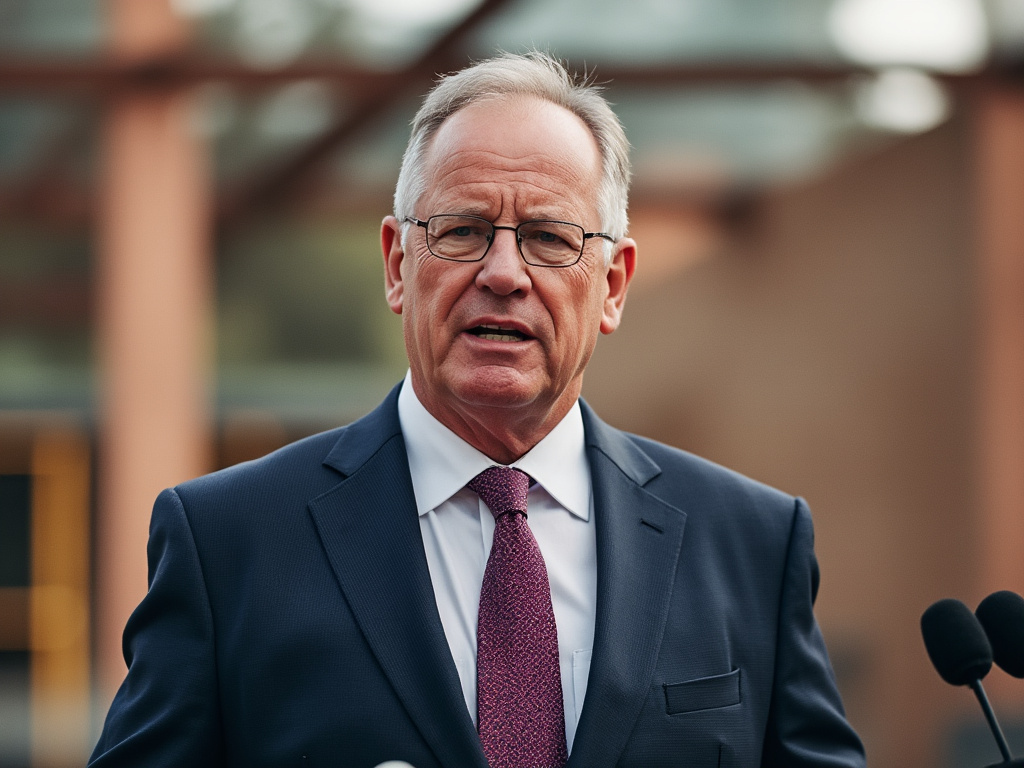
Election Campaign Update: Albanese and Dutton Engage in Key Battlegrounds
Leaders press their agendas as the Australian federal election approaches, with significant developments in trade policies and local contests.
As the Australian federal election of 2025 approaches, Prime Minister Anthony Albanese and Opposition Leader Peter Dutton are actively campaigning in critical regions, engaging with voters and responding to pressing political topics.
Albanese has recently traveled to the Hunter region, a historical battleground for Labor, which is largely influenced by industries such as coal, aluminum, and agriculture.
As the election nears, the demographics of the Hunter are pivotal, with Anthony Albanese's government seeking to maintain its foothold in key seats, some of which are contested.
Notably, the seat of Hunter, represented by Dimitri Repacholi and currently held by Labor, faces significant challenges as local support shifts.
In tandem, Dutton addressed concerns regarding the Coalition’s proposed nuclear reactor sites, suggesting he would not visit all seven nominated locations due to time constraints.
His comments followed a press conference in Hasluck, where he reaffirmed the necessity of discussing national priorities surrounding defense and energy.
Critically, the opposition leader has taken a stance on Australia’s economic position following the imposition of new tariffs by the United States under President Donald Trump, positioning himself as a voice for those affected by the tariffs.
Dutton emphasized the potential for leveraging Australia’s defense capabilities in negotiations to secure favorable trade terms, a topic that has drawn attention due to its implications for U.S.-Australia relations and the AUKUS defense pact.
Meanwhile, the Australian Electoral Commission reported record enrollments, with approximately 18 million voters registered, reflecting a nearly 98 percent participation rate among eligible voters.
This record-high figure highlights increasing engagement in the electoral process as the deadline approaches.
Dutton reiterated his party's commitment to agriculture and infrastructure funding, announcing a $600 million pledge for roads relevant to the mining sector, while Albanese defended the Labor Party's stance on industrial relations amidst ongoing debates concerning job security and employee rights.
In recent statements, Albanese condemned the U.S. tariffs as unwarranted while asserting that Australia received comparatively favorable treatment compared to other nations.
This line of discourse indicates a broader strategy to address burgeoning international trade issues that may influence voter sentiment ahead of the May 3 election.
The upcoming ABC-hosted leaders' debate on April 16 is expected to provide further clarity on the candidates' platforms, marking the first time since 1993 that such a debate will take place in an ABC studio.
The political landscape continues to evolve rapidly as both major parties navigate voter concerns amidst significant global and national influences.
Albanese has recently traveled to the Hunter region, a historical battleground for Labor, which is largely influenced by industries such as coal, aluminum, and agriculture.
As the election nears, the demographics of the Hunter are pivotal, with Anthony Albanese's government seeking to maintain its foothold in key seats, some of which are contested.
Notably, the seat of Hunter, represented by Dimitri Repacholi and currently held by Labor, faces significant challenges as local support shifts.
In tandem, Dutton addressed concerns regarding the Coalition’s proposed nuclear reactor sites, suggesting he would not visit all seven nominated locations due to time constraints.
His comments followed a press conference in Hasluck, where he reaffirmed the necessity of discussing national priorities surrounding defense and energy.
Critically, the opposition leader has taken a stance on Australia’s economic position following the imposition of new tariffs by the United States under President Donald Trump, positioning himself as a voice for those affected by the tariffs.
Dutton emphasized the potential for leveraging Australia’s defense capabilities in negotiations to secure favorable trade terms, a topic that has drawn attention due to its implications for U.S.-Australia relations and the AUKUS defense pact.
Meanwhile, the Australian Electoral Commission reported record enrollments, with approximately 18 million voters registered, reflecting a nearly 98 percent participation rate among eligible voters.
This record-high figure highlights increasing engagement in the electoral process as the deadline approaches.
Dutton reiterated his party's commitment to agriculture and infrastructure funding, announcing a $600 million pledge for roads relevant to the mining sector, while Albanese defended the Labor Party's stance on industrial relations amidst ongoing debates concerning job security and employee rights.
In recent statements, Albanese condemned the U.S. tariffs as unwarranted while asserting that Australia received comparatively favorable treatment compared to other nations.
This line of discourse indicates a broader strategy to address burgeoning international trade issues that may influence voter sentiment ahead of the May 3 election.
The upcoming ABC-hosted leaders' debate on April 16 is expected to provide further clarity on the candidates' platforms, marking the first time since 1993 that such a debate will take place in an ABC studio.
The political landscape continues to evolve rapidly as both major parties navigate voter concerns amidst significant global and national influences.
AI Disclaimer: An advanced artificial intelligence (AI) system generated the content of this page on its own. This innovative technology conducts extensive research from a variety of reliable sources, performs rigorous fact-checking and verification, cleans up and balances biased or manipulated content, and presents a minimal factual summary that is just enough yet essential for you to function as an informed and educated citizen. Please keep in mind, however, that this system is an evolving technology, and as a result, the article may contain accidental inaccuracies or errors. We urge you to help us improve our site by reporting any inaccuracies you find using the "Contact Us" link at the bottom of this page. Your helpful feedback helps us improve our system and deliver more precise content. When you find an article of interest here, please look for the full and extensive coverage of this topic in traditional news sources, as they are written by professional journalists that we try to support, not replace. We appreciate your understanding and assistance.










